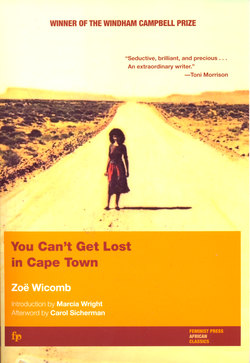You Can't Get Lost in Cape Town

Реклама. ООО «ЛитРес», ИНН: 7719571260.
Оглавление
Zoe Wicomb. You Can't Get Lost in Cape Town
Отрывок из книги
YOU CAN’T GET LOST IN CAPE TOWN
A Project of The Feminist Press at The City University of New York
.....
Mixing in the seventeenth century occasionally involved visible and highly placed persons. Detailed examinations are now being made of the life of the late-seventeenth century Khoikhoi woman Eva, the protégé of and interpreter for the first Dutch governor, wife of a company official, and, finally, a mother in reduced circumstances. Her Khoi name, Krotoa, is adopted by those who promote her as the foremother of the new South Africa.13 In the seventeenth and eighteenth centuries, some other marriages between white men and Khoi or coloured women were solemnized in church. A few descendants of these marriages became citizens, burghers, with full civil rights.14 For example, among the leadership in colonial coloured resistance was the Reverend James Read, Jr., the son of a London Missionary Society missionary and a Khoi-descended woman.15
The impoverishment of the majority of those considered to be coloured resulted from their lack of capital and ability to secure and retain land, their indebtedness, and the failure of wages to rise in real terms. It has been reckoned that pay for coloured workers did not improve relative to the cost of living between the 1840s and the interwar period.18 There may have been some real increases in the 1940s and 1950s, but they were stalled and reversed as the full effects of apartheid took hold. Coloured wages declined steeply relative to white wages. Declining real wages affected women as well as men in the formal economy; women had to work ever harder, by whatever means, to meet their household needs. The attitude of the canteen worker Tamieta at the University of the Western Cape in “A Clearing in the Bush” reflects many women’s aversion to the risk of lost employment, as well as compromises of respectability.
.....